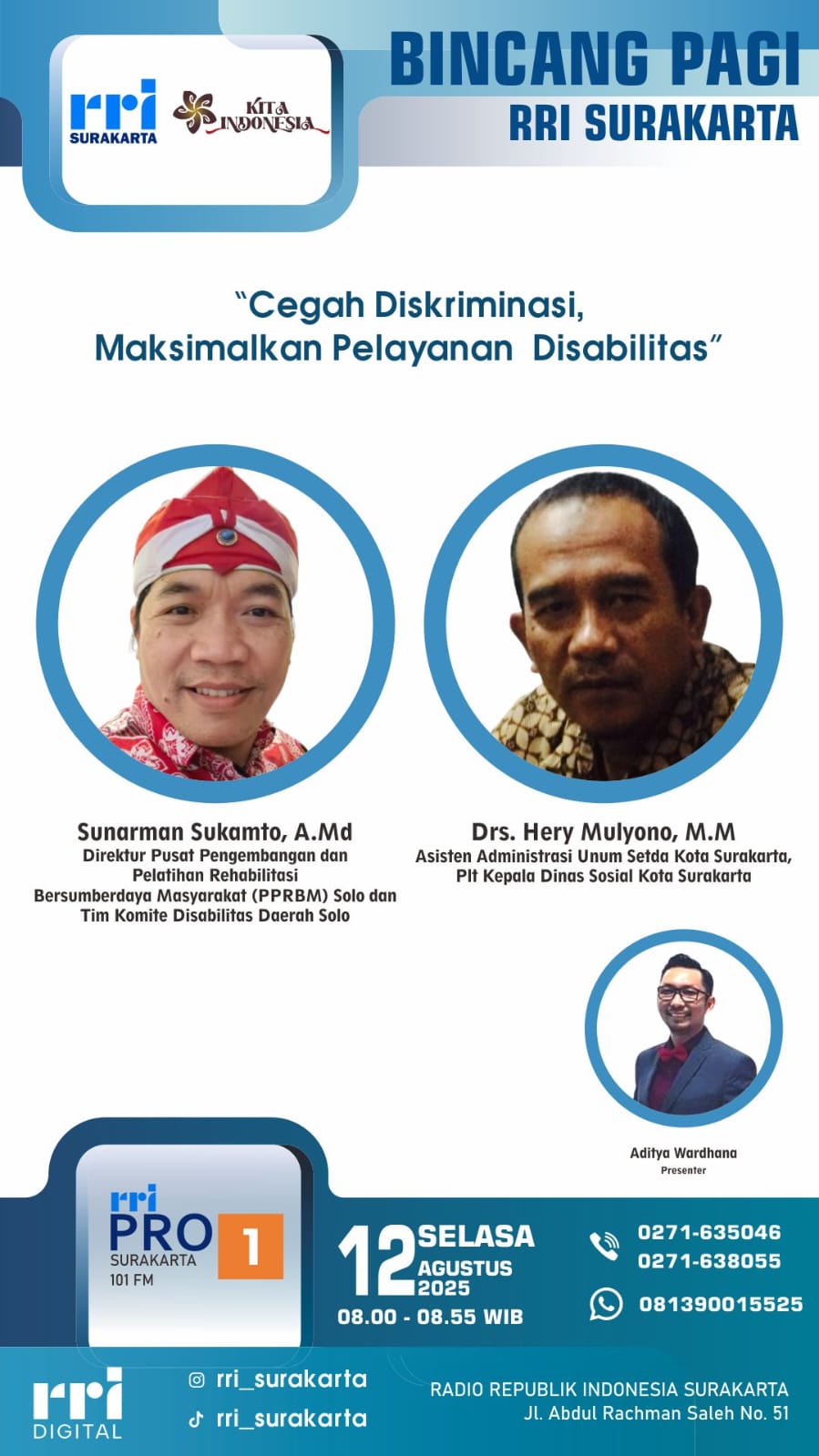During an Public Indonesian Radio broadcast (RRI Pro 1 Surakarta) by Aditya Wardhana, on Tuesday (12/8), the Director of the Centre for Community-Based Development, Training and Rehabilitation (PPRBM) Solo and Advisor for Local Disability Commission, Sunarman Sukamto said that only none out of 100 people with disability in Surakarta had Family Hope Social Aid Program. Moreover, only 60 percent of people with disability could not get access to information regarding the social aid, particularly the Family Hope Program. They simply had difficulty accessing it because they had limitations.
One broadcast listeners asked about the data for disability and the answer was that every disability community had data. In other words, data collection could be done via members of these communities. “We had a number of dialogues with the Social Agency. The latter said that there was already some improvement and new beneficiaries. Yet, when the aid came, many people with disability said that they did not get it,”said Sunarman. He suggested data improvement. It would be better if the Social Agency used data collected by disability communities. Ideally, there should be updates or improvement every three months.
Another listener, Fitria asked what programs did the social agency offer? An elderly person with vision impairment from Klaten asked another question regarding mutiple vulnerabilities that he had, and how the health insurance cover the needs of people with disability who lived alone when the needs for caregivers could be provided by village midwives. The next question was whether the Family Hope Program and the need for assistive device were in line with actual needs and health issues. Sunarman said that that was exactly where multiple vulnerabilities were most visible, and that extra cost were needed and that the State neglected that. He also suggested that the new policy would put aid priority onto people with disability, elderly and people with psychosocial mental disability.
With regards to the involvement of people with disability in local development, they were involved in local development deliberation, and 100% of government agencies had involved people with disability. However, no one knew whether all those policies were already implemented. Sunarman added that the Ministry of Home Affairs could actually issued a circular to provincial and district agencies about the Population and Civil Registry policies. This latter prompted disability groups to receive empowerment, because each village had data that were upgraded on a regular basis. Empowerment could be done by involving people with disability in government programs, through accessing village funds for group empowerment, Red-and-White Cooperative that involved people with disability, Village Cooperatives that involved and employed people with disability, and also People’s Schools regardless of what the concept might be. Otherwise, people with disability would be forgotten/neglected, particularly elderly people with disability who had difficulty sending their children to schools, and they were all worth the efforts.
Acting Head of Social Agency in Surakarta, Hery Mulyono said that data and poverty map in Surakarta showed that many people with disability had not enjoyed the benefits of Family Hope Program. Surakarta City has e-sik appplication and around 1,800 people with disability on record. He also suggested that the decision regarding Family Hope Program, its mechanism for approval from the District/City was the responsibility of the Ministry for Social Affairs based on National Integrated Social and Economy Data. (DT SEN).












